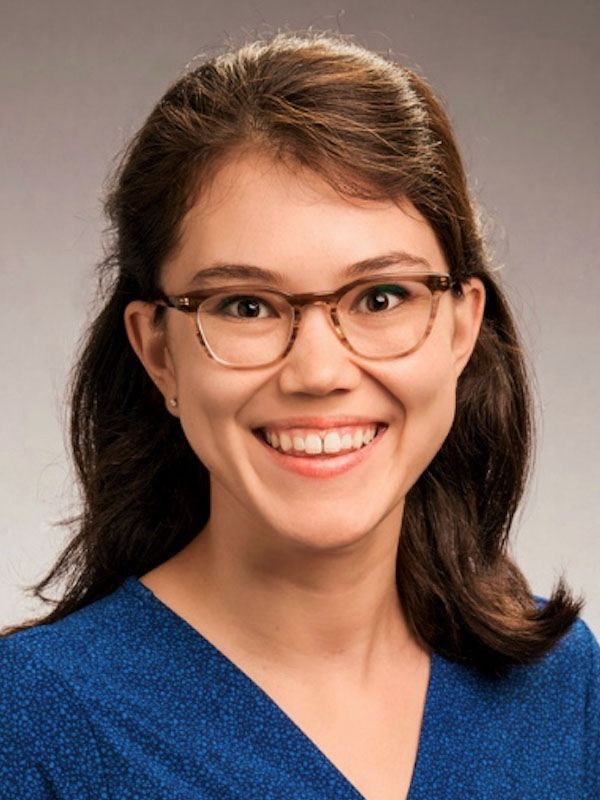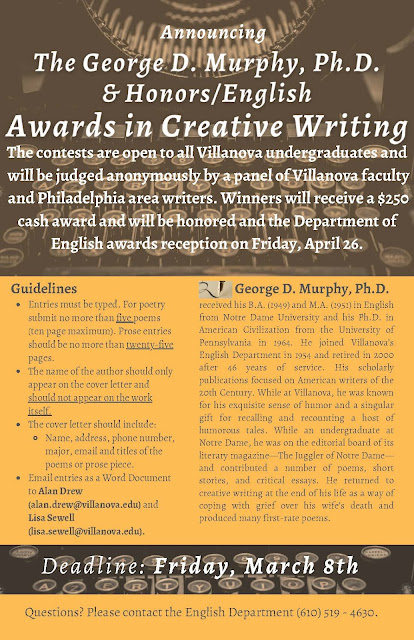Fall 2024 UPPER-LEVEL ENGLISH COURSES
2003 Intro to Creative Writing TR 11:30-12:45, Tsering Wangmo
Designed for students who wish to experiment with composing several kinds of creative writing: short fiction, creative nonfiction, and poetry.
2006 The Writing of Poetry, MW 3:20 – 4:35, Lisa Sewell
Instruction in poetry writing, including how to craft imagery, figurative language, sound, line, and rhythm, as well as traditional and contemporary forms. Students read widely and write lyric, narrative and experimental poems that are shared in a supportive workshop setting.
2013 Writing of Memoir TR 4:00-5:15, Tsering Wangmo
Memoir is an opportunity to understand life. This writing workshop provides students with practical skills in reading and writing about the events, memories, places that inform their lives.
2017 Writing Detective Fiction TR 10:00-11:15, Alan Drew
Do you love detective fiction? Have you always wanted to write your own "whodunit?" In this course, you'll read and analyze classic and contemporary detective fiction while working to produce, workshop, and polish your own creative work.
2018 Nature Writing Workshop TR 2:30-3:45, Cathy Staples
The natural world will be a source for the creative non-fiction, poetry, and fiction pieces students will write in this class. Through readings, field trips, writing exercises, and workshops students will learn to sharpen their language and see more deeply.
2023 Journalism TR 1:00-2:15, Kathryn Szumanski
Introduces students to key techniques of news gathering and news writing. We will also explore the principles and rules that guide the writing of news pieces, editorials, and features.
2043 Pop Culture & Resistance MW 3:20-4:35, Karyn Hollis
An analysis of notable works of art, music, literature, video and social media created by people of various international, ethnic and minoritized groups to publicize situations of importance to their communities.
2061 Editing & Publishing MW 1:55-3:10, Adrienne Perry
Literary publishing in a diverse, compelling field involving both art and commerce. This hands-on class explores the economic, social, and artistic forces that shape contemporary literature. Grapple with what it means to "make culture" while honing editorial skills.
2250 Ways of Reading TR 10:00-11:15, Michael Dowdy
An exploration of how we engage, understand, explicate, and enjoy texts of all sorts.
2304 Contemporary World Lit & Environment MW 4:45-6:00, Lisa Sewell
The study of global contemporary fiction, poetry, creative non-fiction, and film that focuses on the environment, climate change, social justice and the future of nature.
2306 Harry Potter: Quests/Questions MWF 10:40-11:30, Evan Radcliffe
In this course we will use the tools of literary analysis to discuss all seven Harry Potter novels. Central topics will include how the series evolves; Rowling’s use of novelistic form, character and characterization, and literary models; and the books’ representations of gender, class, and other social issues.
3150 Chaucer MW 1:55-3:10, Brooke Hunter
This course introduces the work of Geoffrey Chaucer through a reading of his lively collection of stories and storytellers, The Canterbury Tales. Through its devout stories, explicit comedies, and probing romances, we will explore medieval society, Chaucer's insights on subjectivity, and influential medieval genres.
3181 Irish Epics TR 8:30-9:45, Joseph Lennon
A study of Irish literature from its origins in the world of Celtic mythology, epic and saga through the development of Anglo-Irish literature.
3550 Victorian Publics & Populations MW 3:20-4:35, Mary Mullen
Reading nineteenth-century literature with an eye to who was reading, what they were reading, and how this reading shaped political debates, we'll consider the Victorian Britain's burgeoning print culture, mass movements, colonial publics, and emergent demographic thinking.
3620 Modernism & Fanfiction TR 2:30-3:45, Megan Quigley
This class studies the surprise connections between literary modernism, the early 20th-century experimental literature that explored taboo language, new ideas about empire, sexuality, race and technology, and contemporary fanfiction. We will read fanfiction, bio fiction, and early 20th-century classics and write analytical essays and fanfic of our own.
4000 American Literary Traditions I TR 1:00-2:15, Kimberly Takahata
What makes literature “American”? Who gets to decide? This course examines how literary traditions developed and changed in nineteenth-century America, with a particular focus on race, citizenship, colonialism, and history-making.
4646 Representation Matters: Race & Ethnicity in Cont. America TR 4:00-5:15, Yumi Lee
Canonical texts that treat questions of race and ethnicity. Focus on the critical role of language and literature in constructing and deconstructing racial categories.
4651 Lives of the Undocumented TR 1:00-2:15, Tsering Wangmo
The lived experiences of undocumented immigrants in the U.S. told in their own words through memoir, fiction, poetry, graphic novel, testimony, creative and critical essays.
4652 Letters, Texts, & Twitter TR 10:00-11:15, Kamran Javadizadeh
How does writing bring together distant lovers, friends, family? We'll read letters, the digital forms (social media, instant messaging) that have replaced them, and their representation in novels, poems, and essays to explore how intimacy forms across distance.
4690 Motherhood & Reproductive Fictions TR 11:30-12:45, Jean Lutes
What power do mothers have? Who has the power to define motherhood? This course examines
U.S. narratives of motherhood from the nineteenth century to the present, with special attention
to issues of reproductive justice. Race, ethnicity, class, and religion will be central to our
discussions.
4704 Borders in Latinx Literature TR 8:30-9:45, Michael Dowdy
How do borders impact our lives, and how might they be imagined differently? This course examines how “the border” shapes Latinx literatures, from the U.S.-Mexico national boundary to alternative sites and conceptions of borders, including texts by Latinx writers from various national origins and in multiple genres.
4705 Literature of Addiction & Recovery MWF 10:40-11:30, Travis Foster
This community-based course for Villanova students and incarcerated men will use literature to explore the causes and experience of addiction in addition to the routes taken toward recovery.
On Fridays, students will leave Villanova for SCI Chester at 9:00 a.m. and return to campus by noon. All registered students will be required to attend a spring semester orientation and to complete clearance forms necessary for entrance into the prison.
5000 Black Diaspora & Identity MW 1:55-3:10, Chiji Akoma
This course investigates the notion of Blackness, principally as it is represented in fiction. Using Blackness as an identity category, we’ll examine how writers across the Diaspora spectrum, principally, Africa, the Americas, and Europe, delineate the place of Africa in the formation of Diaspora culture and identity. But beyond the black particularities of the texts, the seminar invites students to consider ideas of hybridity, multi-ethnicity, nationalism, and ways in which one’s “received” culture intersect with “perceived” culture as templates for identity formation.
HON 5440-100 Poets in the Gallery at the Philadelphia Museum of Art Weekend of Oct. 25-27, 2024, Cathy Staples
The workshop begins on Friday in the Honors seminar room with exercises in memory and observation. On Saturday morning, we’ll take the train into Philadelphia and spend the day at PMA on the parkway. We will write our way through the galleries, using the paintings as well as sculpture and installation as entry points for new poems. On Sunday, we’ll gather to share new work over coffee, tea, French toast, & banana bread.







.png)






